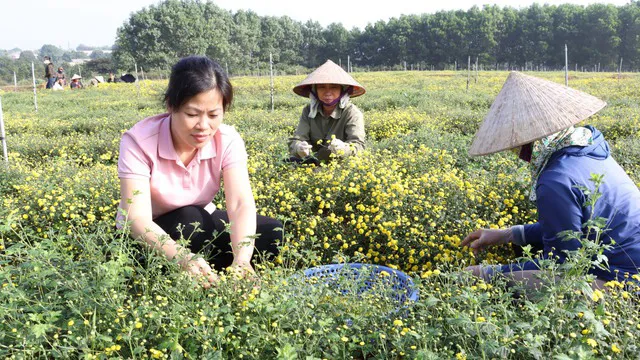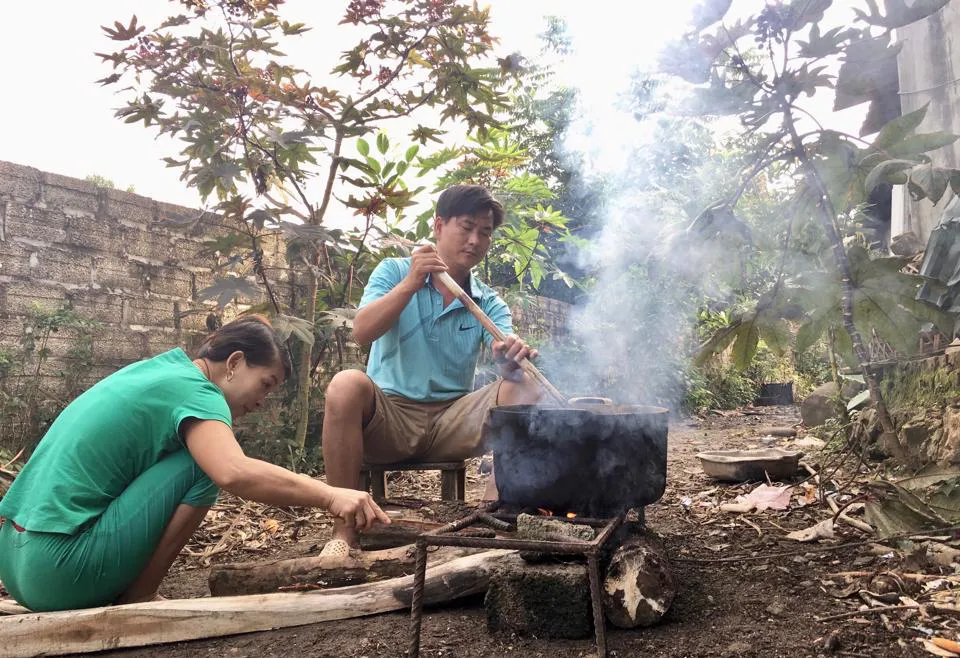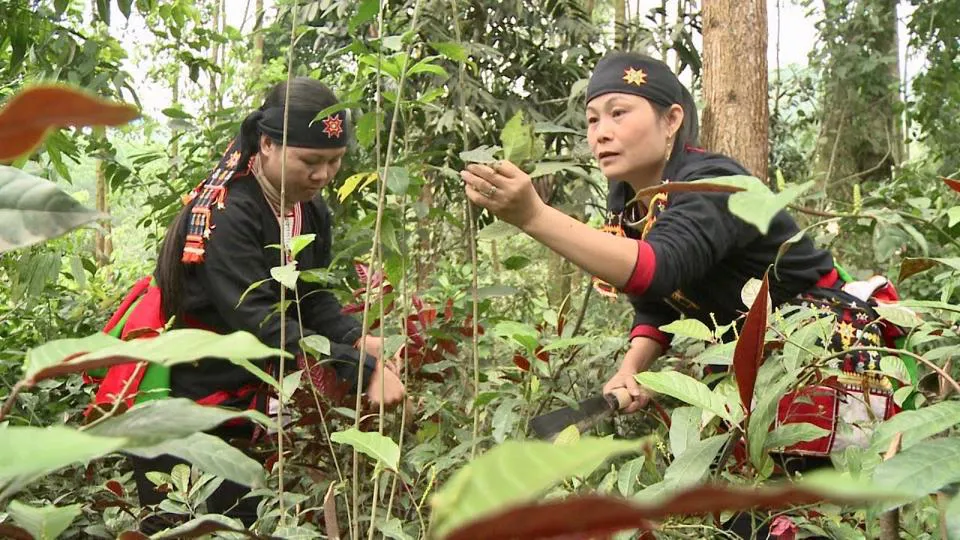Conservation and promotion of medicinal plants in Hanoi
Hanoi has set a goal of planting 400 hectares of medicinal plants by 2025 and 1,000 hectares by 2030.
People in Hanoi's districts of Ba Vi, Son Tay, Soc Son, and Thach That have been striving to preserve medicinal plants as traditional medicine has been their essential source of income for generations.
Uong Tuyet Nhung, Director of Phuc Lam High-tech Agricultural Cooperative, said they have set up a trial field of chrysanthemum medicinal plants covering more than three hectares in Son Tay Town.
"This is a model built by the Hanoi Agricultural Extension Center to link production and consumption of medicinal plants, to turn hilly areas into orchards of medicinal plants," Nhung said.
Area for growing medicinal chrysanthemum in Hanoi. Photo: VGP |
Nguyen Van Ha, Head of the horticulture extension department under the Hanoi Agricultural Extension Center, said the city has about 213 hectares under medicinal plant cultivation. "Medicinal plant cultivation models have helped change the structure of crops, creating a link between production and consumption," Ha told The Hanoi Times.
He added that the demand for medicinal herbs is growing. Land consolidation for medicinal plants will be an opportunity for Hanoi to create specialized production areas, apply technical advances in production, and help farmers earn better incomes.
Le Luu Cau, Deputy Director of the Hanoi Agricultural Extension Center, said the center will continue to work on creating specialized medicinal plant plots that meet GACP-WHO standards.
"The city has set a target of planting 400 hectares of medicinal herbs by 2025 and 1,000 hectares by 2030. We will also have policies to support the conservation and restoration of precious and rare medicinal plants," Cau stressed.
Trieu Thi Duyen and her husband in Ba Vi Commune process medicinal plants. Photo courtesy of Duyen’s family. |
"After years of practicing the craft, we have earned enough money to renovate our house. Many other households in my village also earn a better income from traditional medicine. Traditional herbal medicines have helped many Yao families lift themselves out of poverty. At the beginning of 2022, there were only 11 poor households left in our community," Duyen said.
Herbalist Duong Thi Binh, 77, said she has been making traditional medicine since she was 11 years old. "Since the 1990s, many Yao households have tried to grow medicinal herbs to secure the source of raw materials. However, poor cultivation techniques resulted in low yields and quality of medicinal plants. We have to travel long distances every day to other provinces and cities, such as Hoa Binh, Phu Tho, and even Lang Son, Ha Giang, to look for herbs," Binh told The Hanoi Times.
With support from departments and branches in Hanoi and Ba Vi District, many Dao households have been able to package their products, print labels, and ensure traceability. Some herbalists have access to online sales channels, live shopping, and partnerships with pharmacies to sell traditional medicines.
People in Ba Vi pick herbal leaves to make traditional medicines. File photo |
According to Do Manh Hung, Chairman of the Ba Vi District People's Committee, the development of community-based tourism in the district will be of great help. "Through tourism, more and more people will learn about the precious traditional remedies, helping to preserve and promote the value of the Yao people's traditional medicinal plants."
"We see traditional medicine as an important economic sector to ensure political security and social order in the community," Hung said.
He noted that Hanoi will allocate about VND1.5 trillion (about US$63 million) to build essential infrastructure in areas inhabited by ethnic minorities, including the Yao community in Ba Vi District. "This will be necessary support to preserve and promote sustainable values for the traditional medical profession of the Yao people," Hung told The Hanoi Times.
"To maintain, develop, and preserve herbs, the local government has launched a movement of medicinal herb planting. In addition, the local government has also worked on a project to support the production and maintenance of medicinal herbs, creating a more stable livelihood for local people," said the chairman.












